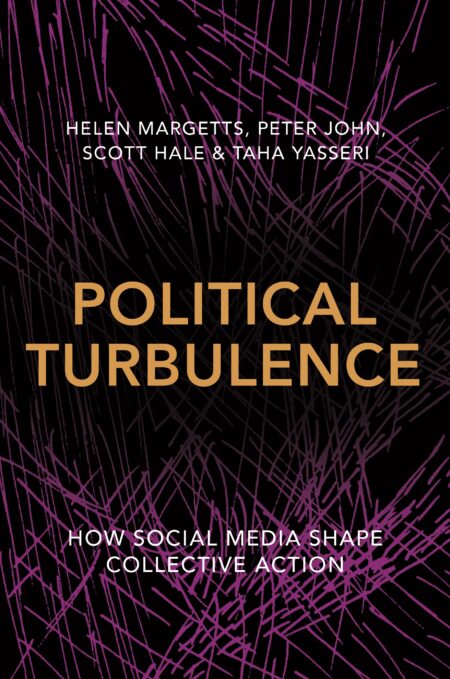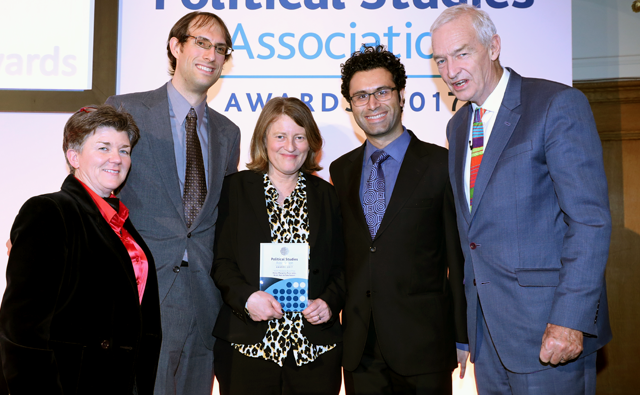Professor Helen Margetts, Professor Peter John, Dr Scott Hale, and Dr Taha Yasseri have won the W. J. M. Mackenzie Book Prize at the Political Studies Association (PSA)’s Annual Awards in Westminster on 5 December 2017.
Now in its 16th year, the PSA Awards pays tribute to those that have made outstanding contributions to politics in the past year. Political Turbulence: How Social Media Shape Collective Action investigates political mobilization in a digital world. As people go about their daily lives using social media, such as Twitter and Facebook, they are invited to support myriad political causes by sharing, liking, endorsing, viewing and following. Chain reactions caused by these tiny acts of participation form a growing part of collective action today, from neighbourhood campaigns to global political movements. Political Turbulence shows how most attempts at collective action online fail. Those that succeed can do so dramatically, but are unpredictable, unstable, and often unsustainable.
To better understand this unruly new force in the political world, the authors use experiments that test how social media influence citizens deciding whether or not to participate. They show how different personality types react to social influence and identify which types of people are willing to participate at an early stage in a mobilization when there are few supporters or signals of viability. The authors argue that pluralism is the model of democracy that is emerging in the social media age—not the ordered, organized vision of early pluralists, but a chaotic, turbulent form of politics. The book demonstrates how data science and experimentation with social data can provide a methodological toolkit for understanding, shaping, and perhaps even predicting the outcomes of this democratic turbulence.
The book was the unanimous winner for the jury, with the rationale: “Political turbulence is a methodologically innovative book with real world resonance and reach. It brings computational social science to bear on pressing political questions about the impact of social media on patterns of democratic participation. It does so with rigour, originality and measured judgement. It provides powerful new insights about democracy in our turbulent times.”
Prof Margetts said: “We wanted to break new ground with this book, applying data science and experimental methodologies to the study of collective action, while engaging with issues at the heart of democratic life today. We also wanted to show that multi-disciplinary research can tackle theoretical questions of central importance to political science. The Award Judges’ comments suggest that we have taken some steps towards achieving those goals. So, we are thrilled to receive the Mackenzie prize!”
“I really enjoyed working across disciplines to combine aspects of computer science, physics, and political science while conducting this research,” Dr Hale added, while Dr Yasseri said “the same technologies that have made the political weather more turbulent and unpredictable could help to advance a more data-driven, agile, and solution-oriented political science.”
You can find out more about the book by visiting Political Turbulence.





